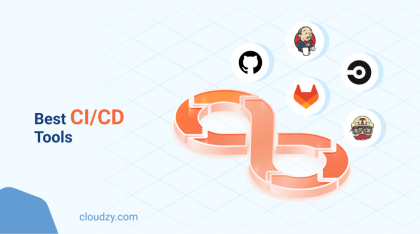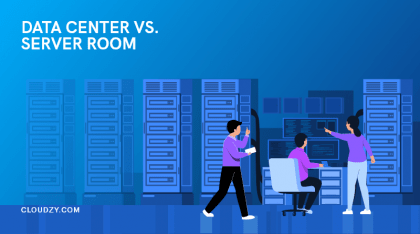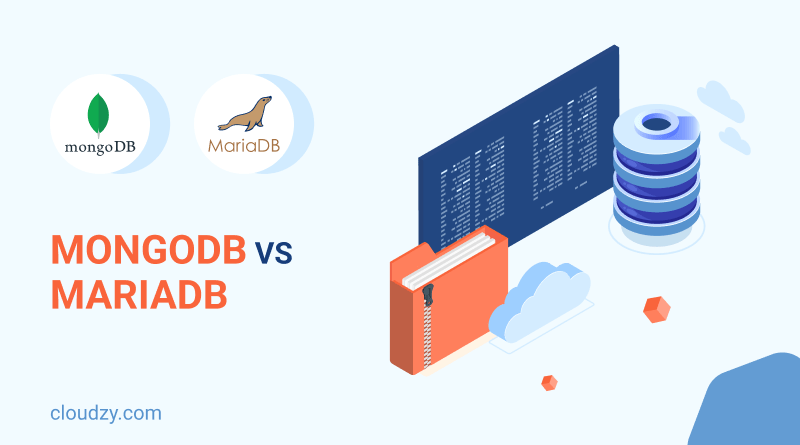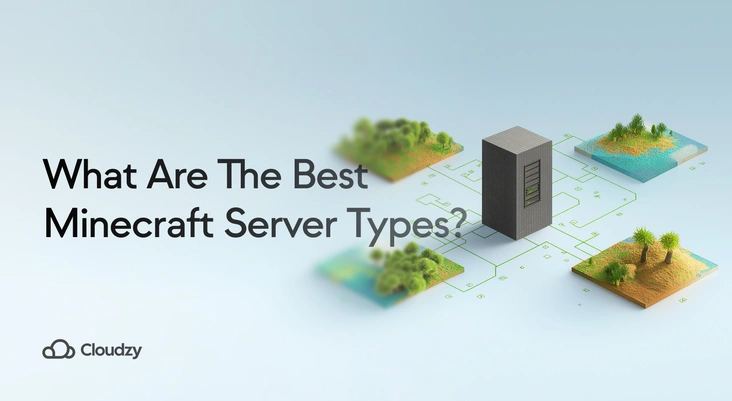If you’ve ever found yourself scratching your head, trying to pick the perfect database management system (DBMS) for your next big project, you’re not alone. It’s a big deal, right? Your choice can make or break the performance, scalability, and even the future-proofing of your application. That’s why we’re diving deep into a thorough comparison between MongoDB vs MariaDB.
So, what’s the buzz about MariaDB? Originating as a fork of MySQL, MariaDB has grown into a go-to SQL database for those seeking an open-source, robust, and versatile solution that focuses on compatibility and performance.
On the flip side, MongoDB steps away from the traditional table-based structure and embraces the flexibility of JSON-like documents. Think of it as the free spirit of databases, offering schema flexibility, scalability, and a straightforward approach to dealing with diverse data types.
Choosing between MongoDB vs MariaDB isn’t just a technical decision; it’s about aligning your database’s strengths with your project’s needs. Throughout this deep dive, we’ll keep things light yet informative. So, let’s get to it.
- Technical Comparison: MongoDB vs MariaDB
- Database Type: The Core Difference of MongoDB vs MariaDB
- Language and Platform Support: Versatility Matters
- Data Storage and Structure: Organizing Your Data in MongoDB vs MariaDB
- MongoDB vs. MariaDB Performance: Speed, Scalability, and Efficiency
- Replication and Partitioning Methods: Keeping Data in Sync
- Diving Into the Details: Core Features of MongoDB vs MariaDB
- Safeguarding Data and Navigating Support: MariaDB vs MongoDB
- Speed, Scale, and Stamina: Performance Analysis of MariaDB and MongoDB
- MongoDB vs MariaDB - The Final Verdict
- FAQ
Technical Comparison: MongoDB vs MariaDB
In our technical comparison between MongoDB vs MariaDB, we’ll cover database types, language support, data handling, performance, replication, and partitioning.
Database Type: The Core Difference of MongoDB vs MariaDB
The fundamental distinction between the two is that MariaDB is a relational database, while MongoDB is a NoSQL, document-based system.
- MariaDB: It’s a classic relational database that uses structured query language (SQL). It’s like a well-organized filing cabinet, where data is stored in tables and rows, interconnected through keys and indexes. It’s all about structure and order.
- MongoDB: This one breaks the mold with its NoSQL approach. It stores data in flexible, JSON-like documents. Imagine a dynamic storage room where you can toss in data of various shapes and sizes without worrying about predefined schemas.
Language and Platform Support: Versatility Matters
When it comes to language and platform support, both MongoDB vs MariaDB are pretty accommodating.
- MariaDB boasts a wide range of language support which includes PHP, Java, C++, Python, etc. It’s like a polyglot, ready to chat with your applications in multiple languages.
- MongoDB isn’t far behind, with strong support for languages like JavaScript, Python, Java, and many more. MongoDB is especially friendly with JavaScript, making it suitable for developers working in Node.js environments.
Data Storage and Structure: Organizing Your Data in MongoDB vs MariaDB
The way these two store and structure data is totally different.
- MariaDB uses the tried-and-true table format. Each table has a fixed schema, defining the columns and data types. This method of storing data brings precision and predefined structures.
- MongoDB, on the other hand, offers a more relaxed environment with its BSON format (a binary version of JSON). This means you can have documents in the same collection with different fields. It’s like having a conversation where you’re free to change topics mid-way.
MongoDB vs. MariaDB Performance: Speed, Scalability, and Efficiency
Now, let’s talk about performance, which is a deal-breaker for many developers.
- MariaDB boasts efficient performance for complex queries thanks to its advanced indexing and query optimization techniques. It’s like having a super-efficient librarian who knows exactly where every book is.
- MongoDB excels in scenarios that require high write loads and horizontal scalability. Its document model can be more efficient for certain types of queries and data structures, which all together make it a great choice for applications that deal with large volumes of diverse data.
Replication and Partitioning Methods: Keeping Data in Sync
Last but not least, let’s talk about replication and partitioning, which are both essential for data availability and scalability.
- MariaDB offers various replication formats like master-slave and master-master replication. It provides multiple copies of your data and makes sure it’s always available, even if one server takes a nap.
- MongoDB features built-in replication with automatic failover and sharding capabilities. Sharding in MongoDB allows horizontal scaling and the distribution of data across multiple machines.
And there you have it! A whirlwind tour of the technical differences between MongoDB vs MariaDB. Each of these tools has its strengths and ideal use cases, so the winner really depends on what your specific project demands.

Diving Into the Details: Core Features of MongoDB vs MariaDB
Are you ready to dig deeper into what makes MariaDB vs MongoDB tick? In this section, we’ll zoom in on the core features of each database and explore the practical functionalities and unique aspects that set each apart.
MariaDB: The SQL Powerhouse
- Advanced Clustering with Galera: MariaDB steps up its game with Galera Cluster, offering synchronous multi-master replication. This means you can write to any node, and the data is replicated instantly to all other nodes. It’s like having a team of synchronized swimmers – every movement is mirrored flawlessly.
- Engine Diversity: Flexibility is MariaDB’s middle name when it comes to storage engines. Whether it’s the dynamic Aria, the speedy Memory, or the robust InnoDB, MariaDB allows you to choose the best engine for your specific workload.
- SQL Compatibility: MariaDB is a dream come true for SQL enthusiasts. The reason behind this is that it supports a broad range of SQL statements, functions, and operators, which altogether make it a familiar and powerful tool for those well-versed in traditional relational database management.
- Security Features: MariaDB takes security seriously. With features like role-based access control, data-at-rest encryption, and a robust audit plugin, it’s like having a high-tech security system guarding your data.
- MaxScale Database Proxy: MariaDB introduces MaxScale, a database proxy that handles load balancing, automatic failover, and query routing. It’s like having a smart traffic controller, efficiently managing the flow of your database queries.
MongoDB: The NoSQL Trailblazer
- Flexible Document Model: MongoDB’s document model is its crown jewel. The flexibility to store data in JSON-like documents means you can handle a variety of data formats with ease. It’s like having a storage unit where you can rearrange the shelves to fit items of any shape and size.
- Scalability and Sharding: MongoDB shines in scalability. Its sharding feature distributes data across multiple machines, handling large datasets and high throughput operations like a champ. Think of it as a warehouse operation, smoothly scaling up to meet increasing demand.
- Aggregation Framework: MongoDB’s aggregation framework is a powerful tool for performing complex data processing and analysis directly in the database. It’s similar to having a built-in data processing lab since it offers a range of operations like filtering, grouping, and sorting.
- Indexing and Text Search: With its robust indexing options, including text search capabilities, MongoDB can efficiently query large datasets. It’s like having a sophisticated search engine quickly find the needle in your data haystack.
- Real-time Applications: For applications that require real-time data access, MongoDB is the optimum choice. Its replication and high availability features make sure that your app has the required data right when it needs it.
Safeguarding Data and Navigating Support: MariaDB vs MongoDB
In the digital world, security isn’t just a feature; it’s a necessity. And when you’re stuck or need to scale up, having a robust support network can be a game-changer. Let’s delve into how MongoDB vs MariaDB handle these crucial aspects: security measures and support systems.
MariaDB: Fortifying Data and Fostering Community
- Security Measures: MariaDB treats security as a top priority. It offers robust data-at-rest encryption, making sure that your data is secure even when the system is offline. It also has a comprehensive audit plugin for monitoring and recording database activities, giving you a detailed log of who did what and when.
- Role-Based Access Control: With its role-based access control, MariaDB allows precise control over who can access what data. It’s similar to having a VIP list for your data – only those on the list get in.
- Community and Enterprise Support: The MariaDB community is vibrant and active, offering a wealth of knowledge and resources. For more mission-critical applications, MariaDB Corporation provides professional support with their enterprise subscriptions, ensuring you have expert help whenever you need it.
MongoDB: Securing Data and Building a Support Ecosystem
- Security Features: MongoDB doesn’t take security lightly either. It offers field-level encryption, allowing you to encrypt specific data within a document. This means sensitive information stays protected, even if other parts of the document are accessed.
- Auditing and Authentication: MongoDB’s auditing capabilities let you track and report on system activity, ensuring you’re always in the know. Coupled with its robust authentication mechanisms, MongoDB ensures that only authorized personnel have access to your data.
- Community and Professional Support: MongoDB’s community is its backbone, offering extensive documentation, forums, and online courses. For businesses, MongoDB Inc. provides professional support services, offering peace of mind with expert assistance, performance tuning, and more.
Both MariaDB vs MongoDB excel in protecting your data with their unique security features. Moreover, their support systems, both community-driven and professional, make sure you’re never alone in your database journey. Whether it’s safeguarding sensitive information or seeking expert advice, these two DBMSs have got your back.

Speed, Scale, and Stamina: Performance Analysis of MariaDB and MongoDB
When it comes to databases, you can say performance is the very heartbeat of the application. In this section, we’re putting MongoDB vs MariaDB under the microscope and we’ll review how they fare in real-world scenarios. We’ll look at benchmarks that focus on speed, scalability, and efficiency.
Speed: The Need for Database Velocity
- MariaDB: Known for its quick query processing, MariaDB is a solid choice for applications requiring complex SQL queries. It leverages powerful indexing and optimization techniques, ensuring fast response times even as your data grows. Imagine it as a seasoned marathon runner, maintaining a steady, swift pace throughout the race.
- MongoDB: MongoDB excels in scenarios where read and write speeds are paramount, especially with large volumes of unstructured data. Its document model allows for rapid data retrieval and insertion, making it ideal for dynamic, data-intensive applications.
Scalability: Growing Without the Growing Pains
- MariaDB: With features like Galera Cluster for multi-master replication, MariaDB handles scalability gracefully. It’s well-suited for applications that need to scale vertically. Imagine a building adding more floors. It needs more resources as it grows upwards.
- MongoDB: Where MongoDB shines is in its horizontal scalability. Thanks to its sharding capabilities, it can distribute data across multiple servers, effortlessly handling massive volumes of data and high throughput demands. It’s similar to a sprawling campus, expanding outwards with ease.
Efficiency: Maximizing Resources
- MariaDB: MariaDB’s storage engines, like Aria and InnoDB, are designed for high efficiency, especially in environments where disk space and memory are concerns. It manages resources effectively, making sure your system isn’t bogged down by unnecessary load.
- MongoDB: MongoDB’s efficiency lies in the fact that it can handle diverse data types and structures without complex conversions or mappings. This ability brings less overhead and a streamlined data handling process, which is particularly beneficial for applications dealing with various evolving data sets.
Both MariaDB vs MongoDB bring their A-game in performance, each with their unique strengths. MariaDB is your go-to for structured data and complex querying, while MongoDB stands out in handling large volumes of diverse, unstructured data with ease. As always, the right choice depends on the specific demands and nature of your project.
MongoDB vs MariaDB – The Final Verdict
Here’s the gist: MariaDB is your SQL powerhouse, perfect for structured data and complex queries, and it offers robust security and traditional database efficiency. MongoDB, the NoSQL maverick, shines with its flexible document model, handling unstructured data with ease, and excelling in scalability and speed for dynamic applications.
Choosing the right one depends on your project’s needs. If you’re dealing with structured data and complex SQL queries, MariaDB is your go-to. But if you’re navigating the realms of big data with varied and evolving data structures, MongoDB will be your best bet.
Do you want to elevate your MariaDB or MongoDB setup? Consider Cloudzy’s VPS solutions as a great tool to turbocharge your database experience. With state-of-the-art infrastructure, 15 global locations, latency-free connectivity, 24/7 support, and a 99.95% uptime guarantee, we have covered every possible benefit you could wish for. You also get to choose among various Linux distros and have it pre-installed on your VPS. So, get your Cloudzy Linux VPS and enjoy high performance and reliability.
FAQ
Should I Use MySQL or MongoDB?
The choice between MySQL vs MongoDB should align with your data structure and the specific requirements of your application. Use MySQL if you need a relational database with strong consistency, complex query capabilities, and familiarity with SQL. Use MongoDB if you require high flexibility, scalable document storage, and a schema that can evolve over time.
Is MongoDB better than MySQL?
Regarding MongoDB vs MySQL performance differences, MongoDB might be better for certain use cases like big data applications content management systems. However, if you’re dealing with traditional web applications with structured data, MySQL is a better option.
What is the main difference between MongoDB and MySQL?
The main difference is their data models: MongoDB is a NoSQL database using flexible, JSON-like documents, ideal for unstructured data, while MySQL is a relational database with structured tables and SQL, suited for complex queries and structured data.
What are the disadvantages of MariaDB?
The MariaDB vs MongoDB comparison is a good opportunity to review some of the disadvantages of MariaDB. While MariaDB is largely compatible with MySQL, some specific features and implementations may differ, potentially causing issues during migration or integration. Also, for extremely large databases or complex queries, MariaDB’s performance might lag behind the performance of more specialized systems.




